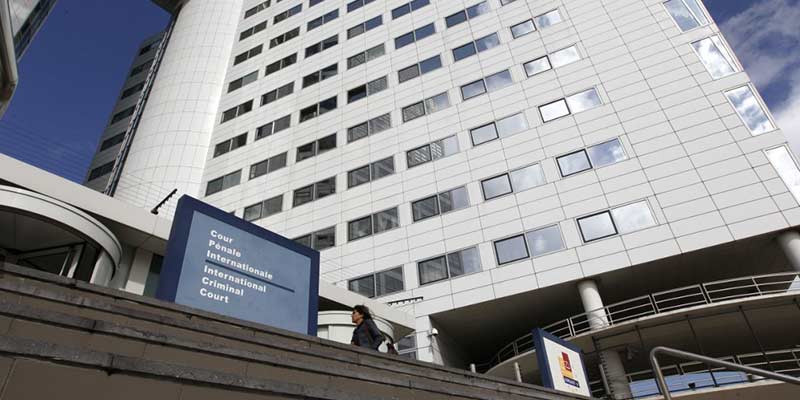- World
- Jun 07
US slaps sanctions on four judges of International Criminal Court
• The Trump administration has slapped sanctions on four judges at the International Criminal Court.
• Marco Rubio, the US Secretary of State, announced measures targeting the judges, who are overseeing a 2020 case of alleged war crime committed in Afghanistan by US and Afghan military forces, and the 2024 ICC arrest warrants issued against Israeli Prime Minister Benjamin Netanyahu and former defence minister Yoav Gallant.
• The State Department said that it would freeze any assets that the ICC judges have in US jurisdictions.
• Neither the US nor Israel is a member of or recognises the court.
• The ICC reinforced its position rejecting the US sanctions.
• US President Donald Trump has targeted the ICC before. During his first term in office, Trump targeted the ICC with sanctions, voicing displeasure with probes into Israel and complaints about alleged war crimes said to have been committed by US troops in Afghanistan. Those sanctions were rescinded by President Joe Biden's administration in early 2021.
International Criminal Court (ICC)
• The International Criminal Court (ICC) is an independent judicial body with jurisdiction over persons charged with genocide, crimes against humanity and war crimes.
• Situated in The Hague, Netherlands, the ICC is governed by the Rome Statute adopted by the UN in 1998. It entered into force in 2002 upon ratification by 60 States.
• In addition, the Rome Statute also sets new standards for victims’ representation in the courtroom, and ensures fair trials and the rights of the defence. The court seeks global cooperation to protect all people from the crimes codified in the Rome Statute.
• Currently, 125 countries are State Parties to the Rome Statute of the ICC.
• India has not signed the Rome Statute as it is not a member of the ICC.
The court’s founding treaty, called the Rome Statute, grants the ICC jurisdiction over four main crimes.
i) Crime of genocide: It is characterised by the specific intent to destroy in whole or in part a national, ethnic, racial or religious group by killing its members or by other means: causing serious bodily or mental harm to members of the group.
ii) Crimes against humanity: Serious violations committed as part of a large-scale attack against any civilian population. The 15 forms of crimes against humanity listed in the Rome Statute include offences such as murder, rape, imprisonment, enforced disappearances, enslavement - particularly of women and children — sexual slavery, torture, apartheid and deportation.
iii) War crimes: They are grave breaches of the Geneva conventions in the context of armed conflict and include, for instance, the use of child soldiers, the killing or torture of persons such as civilians or prisoners of war, intentionally directing attacks against hospitals, historic monuments, or buildings dedicated to religion, education, art, science or charitable purposes.
iv) The crime of aggression: It is the use of armed force by a state against the sovereignty, integrity or independence of another state.
Functioning of the ICC
• The ICC is composed of 18 judges, who are elected for terms of office of nine years by the Assembly of States Parties to the Rome Statute.
• As a judicial institution, the ICC does not have its own police force or enforcement body. Thus, it relies on cooperation with countries worldwide for support, particularly for making arrests, transferring arrested persons to the ICC detention centre in The Hague, freezing suspects’ assets and enforcing sentences.
• While not a UN organisation, the ICC has a cooperation agreement with the UN. When a situation is not within the court’s jurisdiction, the UN Security Council can refer the situation to the ICC granting it jurisdiction.
• The ICC actively works to build understanding and cooperation in all regions, for example, through seminars and conferences worldwide. The court cooperates with both states parties and non-states parties.
• The Court does not replace national courts. It is a court of last resort. States have the primary responsibility to investigate, try and punish the perpetrators of the most serious crimes.
• The Court will only step in if the State in which serious crimes under the Court’s jurisdiction have been committed is unwilling or unable to genuinely address those. The Court’s resources remain limited and it can only deal with a small number of cases at the same time. The Court works hand in hand with national and international tribunals.
How is ICC different from ICJ?
• The International Criminal Court (ICC) is established to investigate, prosecute and try individuals accused of committing the most serious crimes of concern to the international community.
• ICC is not part of the United Nations but they have a cooperative and complementary relationship.
• International Court of Justice (ICJ) is the principal judicial organ of the United Nations for the settlement of disputes between States.
• The International Court of Justice and the International Residual Mechanism for Criminal Tribunals also have their seats in The Hague.
Manorama Yearbook app is now available on Google Play Store and iOS App Store


